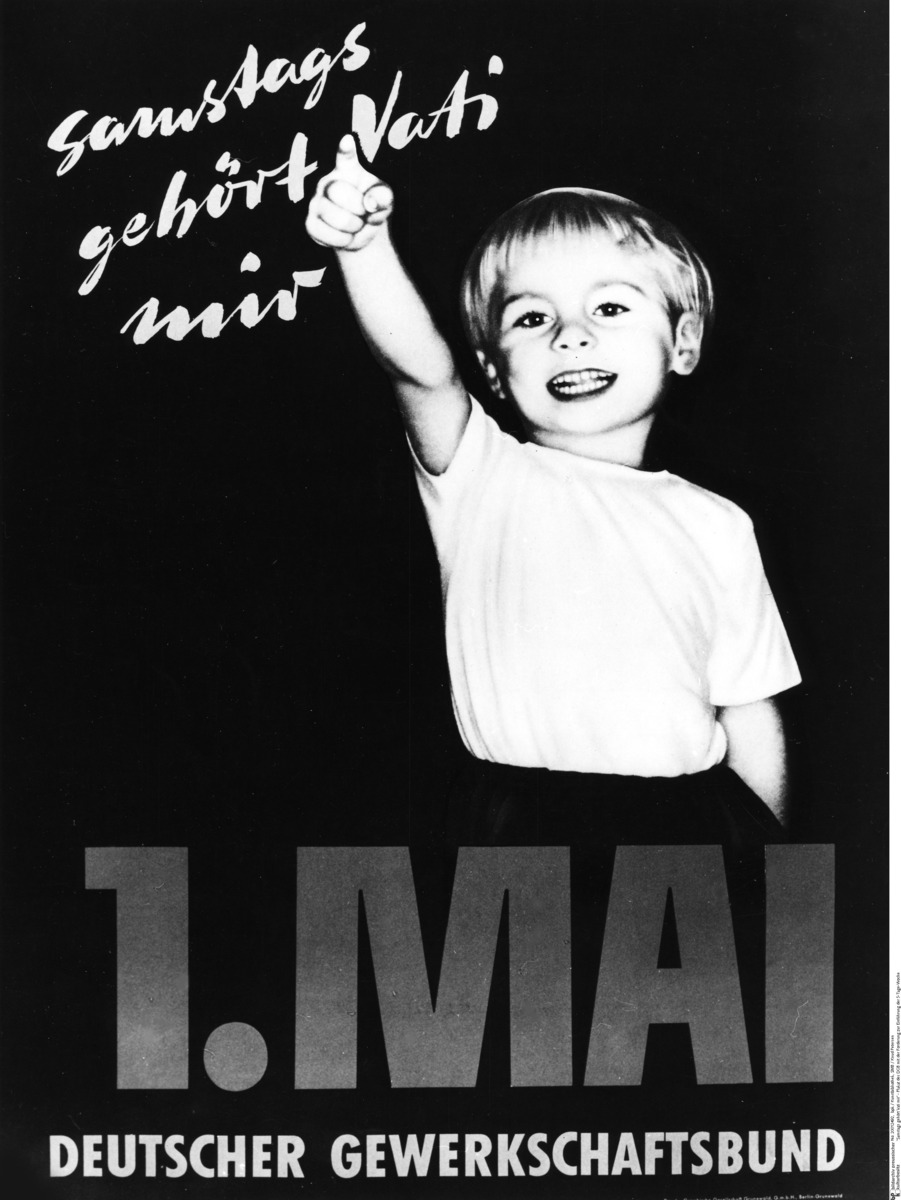Abstract
In 1955, the national committee of the Confederation of German Trade Unions (DGB) passed an action program in response to an October 1954 initiative by the Third National Congress of the DGB. The 1955 action program called for the introduction of a five-day work week and an eight-hour work day – without any accompanying decrease in pay. This effectively restricted work time to forty hours a week. To highlight these demands, the DGB adopted the slogan “Forty hours are enough – five days are enough” for its May Day celebrations in 1955. On Labor (May) Day in 1956, it continued to promote the five-day work week with the “On Saturdays, Dad’s mine” campaign. The slogan emphasized the important role that men played as fathers in the Federal Republic’s new conception of ideal masculinity incorporating fatherhood.
